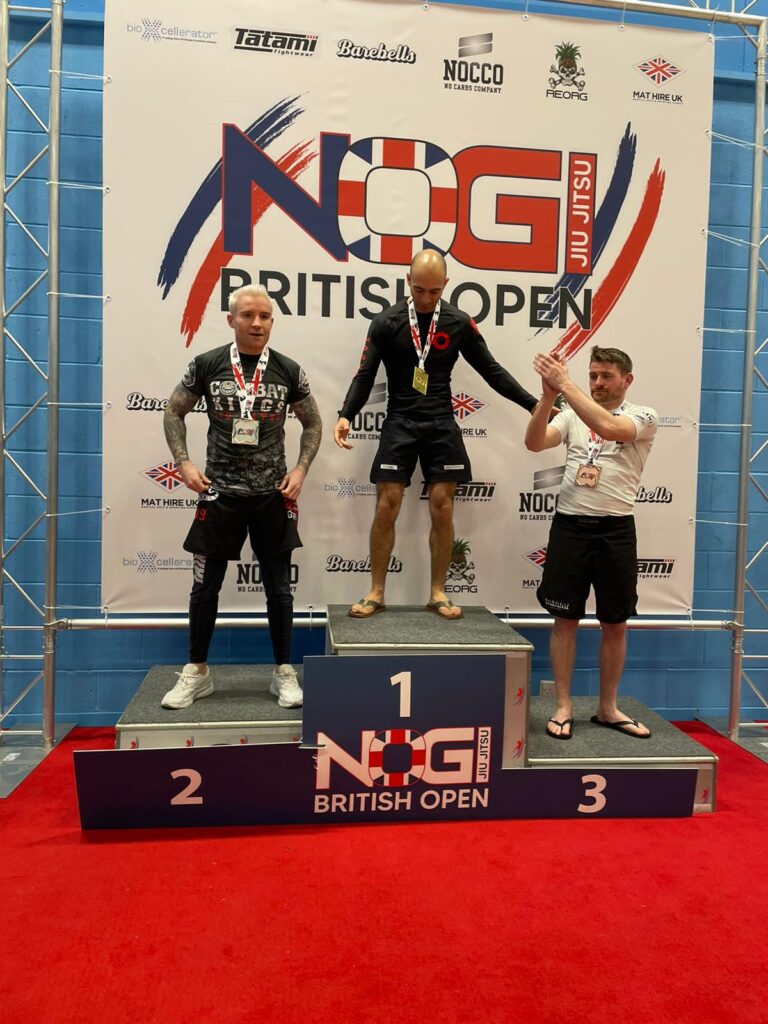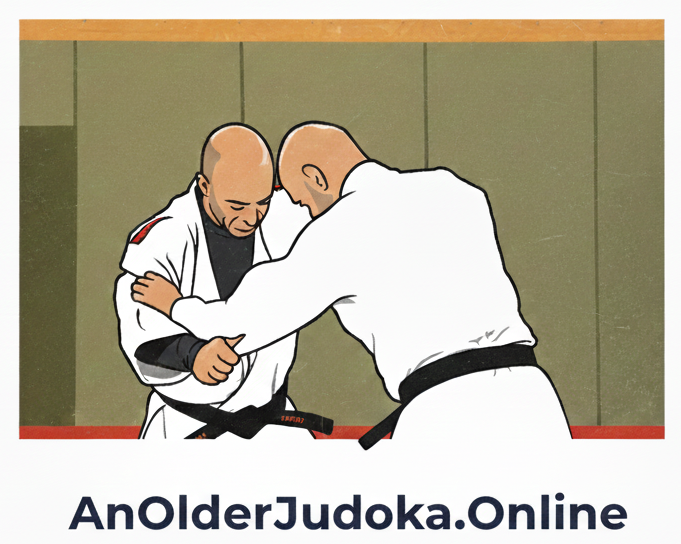In previous posts I’ve written about the benefits of cross-training in both Judo and Brazilian JiuJitsu (BJJ). Hot on the heels of my success in a Judo 2nd Kyu/Blue Belt competition months ago I decided to enter a no-gi BJJ competition.
The competition I entered was the British NoGi Open – it happened in early December 2021. I am fairly unfamiliar with wrestling techniques; the gripping without a gi, the movements and strategies are completely new to me. It’s good to have a challenge right?
I was nervous leading up to this event as I had little experience to draw upon other than what I found on YouTube, and recollections from more senior BJJ club mates.
Rulesets matter
The ruleset defines the sport. It dictates what’s acceptable, what’s not, and how the action will play out. Despite BJJ rising in popularity in recent years, in my opinion the sport structure is still in its infancy. I say this because when I spectate a high-level match I find it gets uninteresting very quickly. Why? Because there is a heavy reliance on technical proficiency which spectators may not be attuned to.
With Judo it’s becoming clear that the sport has evolved given its 100+ year history. It’s a watch-able sport even with little knowledge of it’s rules because of the simple premise that: One person needs to throw the other person down on their back, or hold them down… that’s it. The rules have evolved since becoming an Olympic sport for various reasons:
- To differentiate it from wrestling (instigated by the controversial leg-grab ban)
- Making it more spectator friendly
- Getting the action to be more definitive and fast-paced
BJJ at present has a very ground-focussed approach. How so? Well, you get very few points in competition (2 points) for a take-down. If you get fewer points for take-downs then why bother with them in the first place? Why spend a disproportionate amount of time learning to fight standing when the lions share of points can be claimed on the ground? This is an example of the ruleset steering the action.
BJJ Competition in the UK
The great thing BJJ has going for it is the popularity and the number of competitions happening. In the UK you are literally spoiled for choice if you’re prepared to travel an hour or three to compete. There are local and regional competitions happening all the time; even more so if you’re close to the capital. Comparing this to British Judo the comparison is stark.
I particularly like the multitude of divisions available in a BJJ competition – they range from experience category to even age ranges. In British Judo there are opportunities if you’re young and aspiring but otherwise there’s little for the over 35s among us. I may be fit for my mid-40s but I’m aware my cardio will be no match to a younger opponent.
Another thing which benefits BJJ for older competitors is the strict 5 minute matches. I personally dread the gong in Judo matches signifying the Golden Score period.
Transfering Judo to No-Gi BJJ
No-Gi competition is not as easily transferable from Judo as you expect. It became apparent very quickly in my matches that for my Judo to work in a straightforward manner I needed a grip of some sort. Grips are fairly limited in the no-gi setup, limited to underhooks, overhooks and collar grips.
Underhooks appear to be the preference with an overhook a strong second. In BJJ competitions, people are wise to Judo players so they actively deny you grips, pummel your hands to wear you out, block your hips or just go straight to the closed guard position. Opportunities still arise, however.
The end result and take-aways

To cut a long story short: I won!! To put this into context, it was against an age category down (there weren’t enough old farts like me to compete so I had to go against people 10 years my junior) and it was against BJJ players that had around a year or so experience. Perhaps it could be considered unfair to the others given I had a couple more years of general grappling experience through my Judo? I disagree, some of my opponents exhausted me properly because the fights always ended up on the ground and there’s only so much Judo class time spent on the ground.
I respect the person who solely takes up Judo as their combat sport of choice. It’s rich, beautiful, dangerous – it’s many things to many people. However, cross-training, and competing in BJJ will revolutionise your Judo arsenal significantly.
